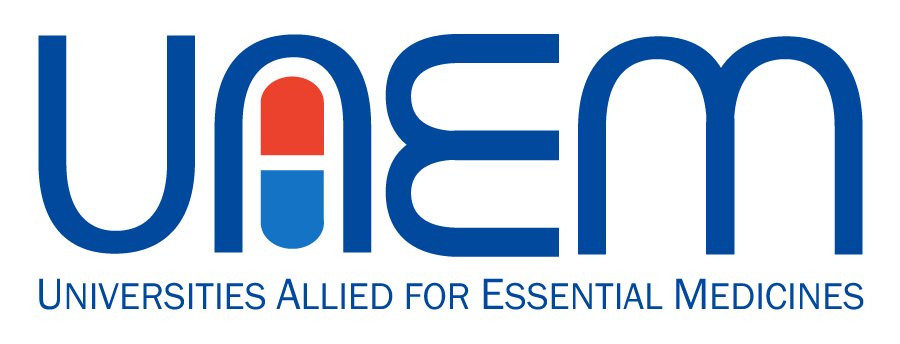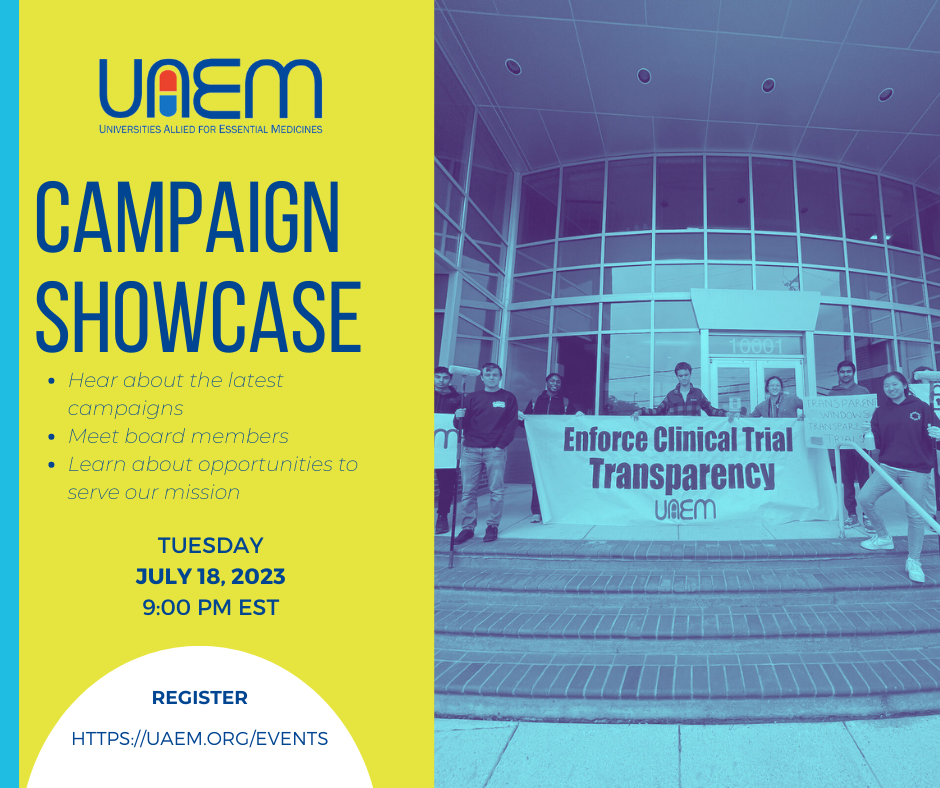Access: UAEM’s priority to deliver access to medicines.
Medicines and health technologies, particularly those developed at universities and research institutions or with public funding, are made accessible and affordable to all people.
— UAEM International Strategic Plan
We face a global access to medicines crisis: at least 10 million people are estimated to die annually from a lack of access to essential medicines, with this figure rising dramatically if we consider the growing threat of antimicrobial resistance. Yet the world population is not equally affected by this crisis: 90% of the global drug production is consumed by 10% of the global population, concentrated in rich countries. The majority of all new drug research starts in a public university or research institution with public funds, hence, policy decisions made at this level have the potential to improve health and access to essential health technologies globally. Universities Allied for Essential Medicines (UAEM) is a global movement of university students organising on their campuses and beyond to ensure that publicly funded medicines and medical innovations, especially those that address neglected health needs, are affordable and accessible to the people who need them.
The driving force behind UAEM’s formation was two-fold: the access to medicines crisis – specifically, access to HIV/AIDS treatment in resource-poor settings – and the realisation that universities can have an enormous impact on global access to their medical innovations.
Our core work on this is through our work on Global Access Licensing, utilizing many types of policies and platforms to do so. But this work also intersects our policy and advocacy work on projects like our COVID-19 mapping project and Free the Vaccine: the campaign we co-developed to fight for access to COVID-19 technologies.










